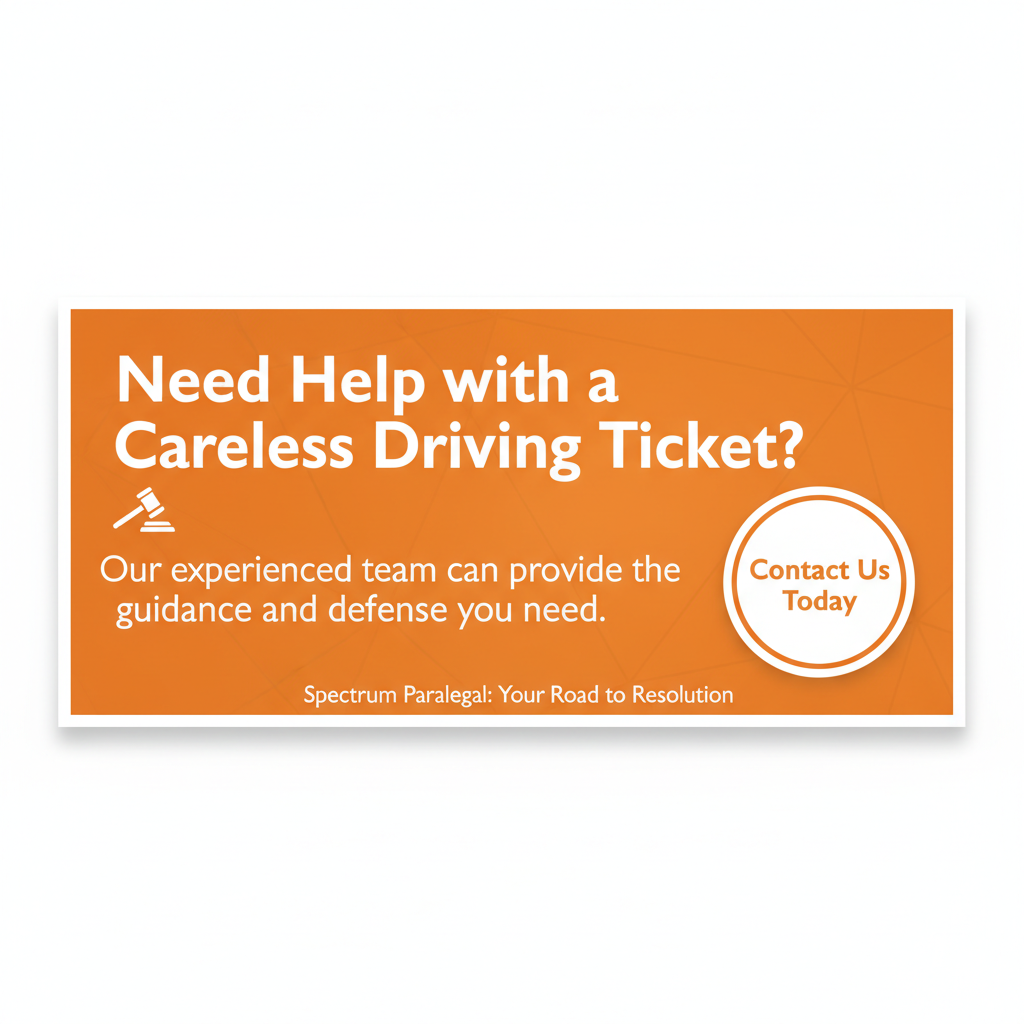Police officers often give out careless driving tickets in the event of a car accident. It is no wonder: the very fact that the accident happened suggests that one or both drivers did not pay sufficient attention or thought required to avoid it.
Penalties for Careless Driving
What else can we say about careless driving tickets? There are many facts that drivers are well aware of and understand. A careless driving ticket is one of the most serious offences under the Ontario Highway Traffic Act. This traffic ticket bears six demerit points. The record of a careless driving conviction stays for three years. In most cases, a careless driving ticket includes a set fine in the total payable amount of $490.00. In extreme situations, punishment can be as severe as a $ 2,000.00 fine or 6 months of imprisonment, combined with a driver’s license suspension.
Everybody is aware that insurance companies do not love careless drivers. In many cases, they cancel insurance coverage upon receiving information about a conviction for careless driving.
What Careless Driving Really Is
To make a long story short, there are many reasons not to leave a careless driving ticket without attention. For this reason, it would be helpful to look into what a careless driving offence really entails. The Oxford dictionary defines the word “careless” as not giving sufficient attention or thought to avoid harm or errors. With this definition, you have a good grasp of “careless driving.” Nevertheless, the specifics of a careless driving ticket merit some further explanation.
The legislative definition of careless driving is set in section 130 of the Highway Traffic Act. It says that “every person is guilty of the offence of driving carelessly who drives a vehicle or streetcar on a highway without due care and attention or without reasonable consideration for other persons using the highway.” Simple logic, supported by many court decisions, suggests that the prosecution must prove at least one of two elements:
-
- A driver either drove the car on a public road without due care and attention or
- operated it without reasonable consideration for other persons using the road.
Elements of Careless Driving
Looks simple? Not so fast. There are many conditions under which the court may not convict a driver of careless driving. Here are some of them:
Inadvertent Negligence
Inadvertent negligence, for example, may manifest as a momentary distraction caused by unexpected external factors. However, it will not result in a conviction for careless driving. For example, some deviation from the reasonable driving pattern may happen because of a mere rock hitting the windshield. Another example is an unexpected animal in the driving lane. As such, inadvertent negligence may provide a defence against a charge of careless driving.
Reasonable Driver Standard
The driver need not exercise a perfect level of skill and care. For example, a driver should not exhibit perfect reaction times or the abilities of a professional racer while on the road. Instead, the judge would see whether the individual exercised a reasonable level of skill. The judge would also see what an ordinary person would do under the same circumstances.
Due Care and Attention
There is no strict set of requirements for “due care and attention” in a careless driving ticket. Instead, the court considers these requirements on a case-by-case basis. They depend on factors such as road conditions, visibility, weather conditions, and traffic conditions, among others. In short, these are any conditions that ordinary, prudent drivers would take into consideration.
Conduct of the Driver
Further (and this is important), to get convicted of careless driving, the driver’s conduct must be of a certain nature. It must represent a breach of duty to the public and deserve punishment. This element must be present even if the driver’s conduct falls below the standard of a reasonable person.
Motor Vehicle Accident
A motor vehicle accident, even a very serious one, is not indicative of careless driving. Instead, one should examine the driving approach—the situation-specific factors listed above are relevant, as well as other pertinent circumstances.
Of course, the above is not comprehensive guidance to defend a driver in each careless driving ticket. Yet, it may explain what is essential and what is not in careless driving cases.







